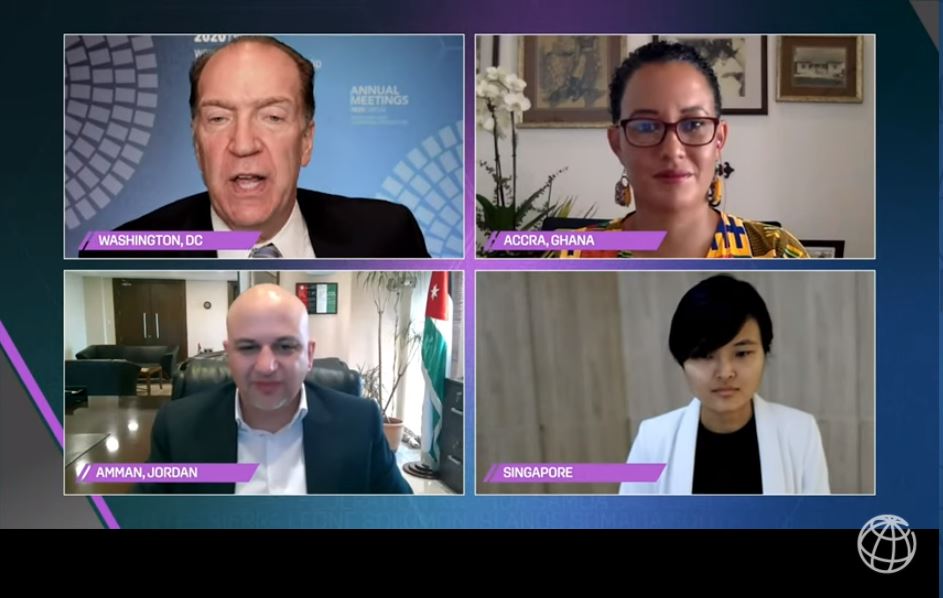Now more than ever, digital technologies keep people connected and governments and businesses running. Yet, almost half of the global population still lives without access to reliable and affordable internet. What can we do to achieve connectivity for all?
"Closing the Digital Divide," held during the 2020 Annual Meetings of the World Bank and IMF, brought together global leaders and private sector innovators, including young African entrepreneurs, to discuss how to bridge the digital gap. Hosted by BBC World News presenter Lerato Mbele, the event kicked off with a fireside chat featuring World Bank Group President David Malpass and Sundar Pichai, CEO of Google and Alphabet. The conversation was followed by a series of panel discussions highlighting key constraints and solutions to close the digital divide.
This is especially true for African countries which tend to have high prices for mobile broadband connectivity and limited penetration. Partnerships between the public and private sector is therefore key to build the infrastructure needed to bridge the connectivity gap in these countries.
Estelle Akofio-Sowah, West Africa Regional Manager at CSquared, said it best: "" This message was echoed by Pamela Gidi Masías, Vice Minister of Telecommunications of Chile, where the government is working with private telecommunication actors to double the kilometers of fiber optic cable throughout the country.
Although infrastructure is vital, "it must be supported by a stable investment and regulatory framework," said Sigve Brekke, president and CEO of Telenor. Such an ecosystem can be created by investing in the education and digital skills of the most underserved population, especially women and girls, who are often excluded from digital development opportunities.
According to Reshma Saujani, founder of Girls Who Code, the gender gap in entry-level tech jobs in the U.S. could be closed by 2027. Even with such an achievement, more educational programs that focus on accelerating inclusion in tech are needed.
For Grab Co-Founder Hooi Ling Tan, inclusivity is key to building resilient connectivity. She explained that one requirement of the different platforms owned by Grab is the ability to reach rural communities as well as cities through Southeast Asia.
The discussion on inclusivity can be summarized in the words of Mothanna Gharaibeh, former minister of Digital Economy and Entrepreneurship in Jordan: "We will close the digital divide only if we see education as a necessity, not a luxury, and technology as a tool for inclusion, not exclusion."
The conversations concluded on a high note with a special musical tribute to the power of connectivity: an original song by a group of incredible African artists, titled "Stay Connected."
The virtual event was followed by a live, interactive Q&A session with World Bank Vice President for Infrastructure Makhtar Diop, and Stephanie von Friedeburg, Interim Managing Director and Executive Vice President, and Chief Operating Officer at IFC, who discussed the critical role of digital technology in the wake of COVID-19.

